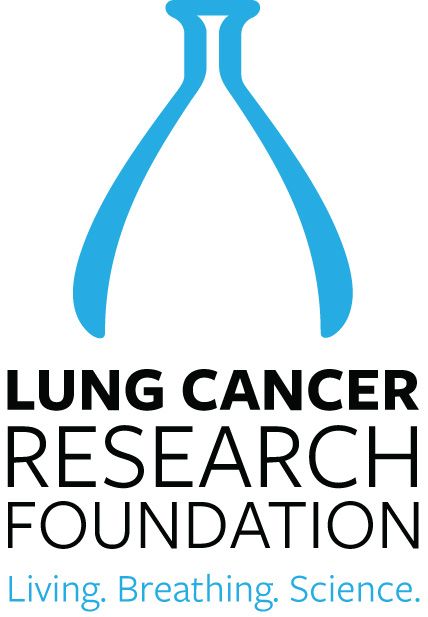
LCRF News: September 2022

Free to Breathe Walks Coming Up Soon! Register Today!
Give Wings to Research –
Sign up for your Walk event and download a free kit at
#TogetherSeparately Monthly Livestreams & Facebook Group
LCRF hosts webinars to bring the lung cancer community together to discuss topics important to them.
#
Wednesday, September 21 at 12 pm EDT
Register at LCRF.org/Together
Dr. Narjust Florez from Dana-Farber Cancer Institute will join our moderator, Dr. Isabel Preeshagul, for our Lung Cancer Community Talk on Wednesday, September 21 at 12 PM ET. This livestream is an opportunity to connect face-to-face with others who care about lung cancer and talk about challenges we’re facing.
We hope you’ll join us for this important discussion on women and lung cancer – where we’ll communicate risk factors, actionable prevention, and early detection steps to improve outcomes for women, particularly women of color, who are diagnosed with lung cancer. We’ll also address what we need to know and understand about how women uniquely experience lung cancer, and what known differences are seen in lung cancer between men and women.
LCRF updates its Comprehensive Biomarker Testing educational resource, now available for download:
You do not need to be a doctor to understand your tumor. Biomarker testing can help.
When your doctors suspected you had cancer, they took a small portion of your tumor tissue (a biopsy) to have it examined. A specialist, called a pathologist, looked at your tumor cells under the microscope and found out you had lung cancer. There are two main types of lung cancer–small cell lung cancer (SCLC) or non-small cell lung cancer (NSCLC). If you have NSCLC, the pathologist looks closely at the cancer cells for certain characteristics (features or qualities). Tumors with similar characteristics are referred to as subtypes. Adenocarcinoma (A-deh-noh-KAR-sih-NOH-muh) and squamous cell carcinoma (SKWAY-mus sel KAR-sih-NOH-muh) are the most common subtypes of NSCLC. Once your health care team knows the subtype of your cancer, treatment planning can begin. Read more & download your copy at
LCRF News:




